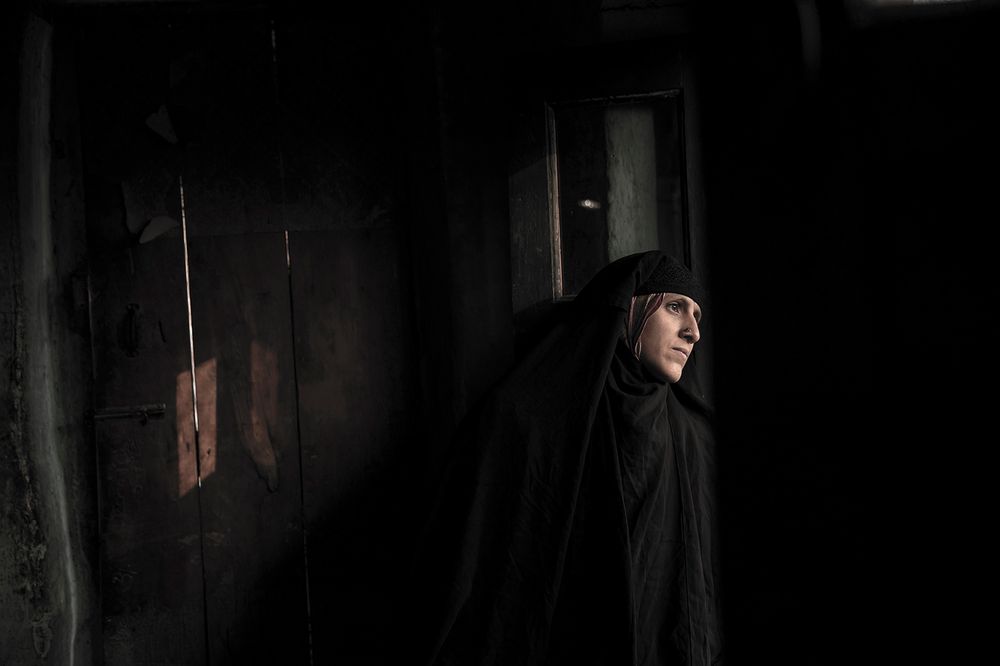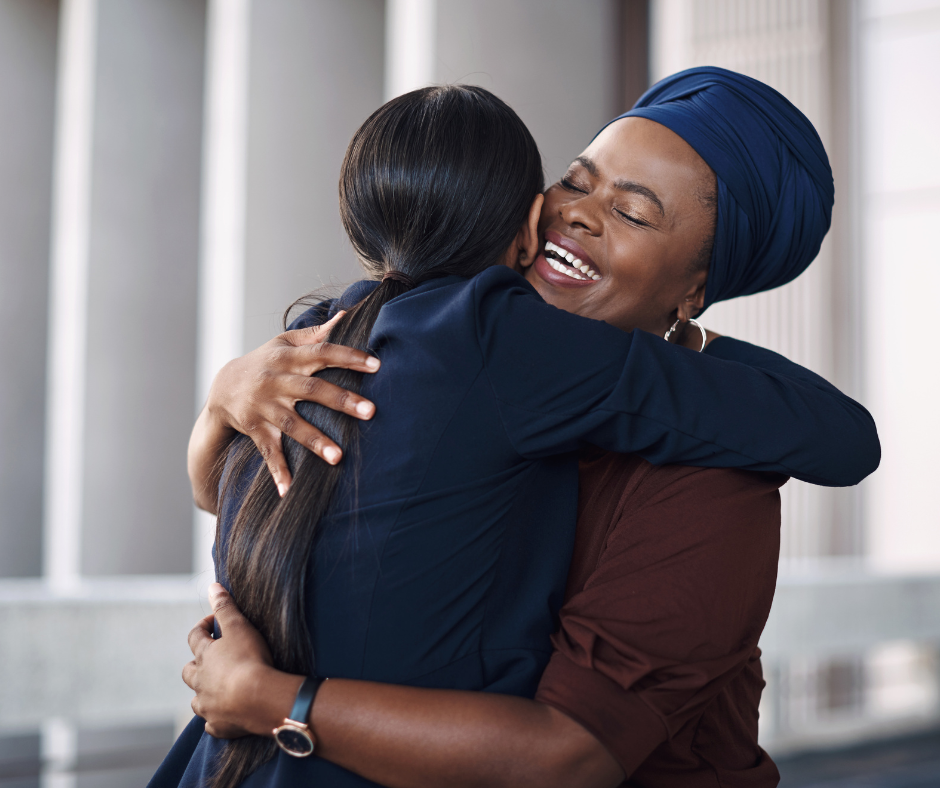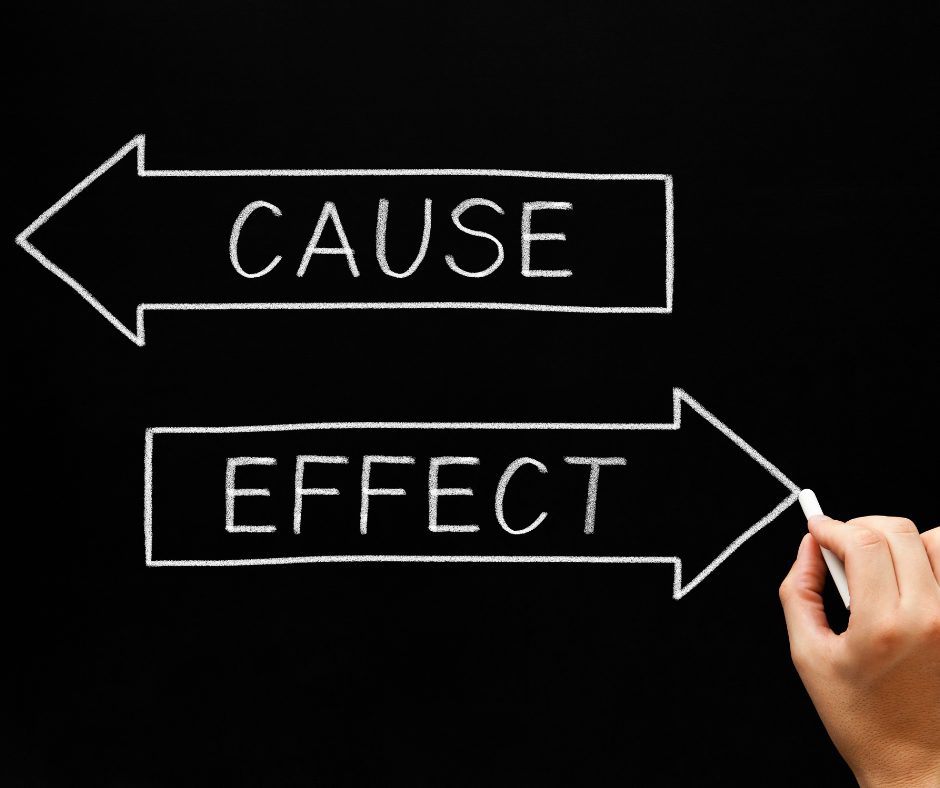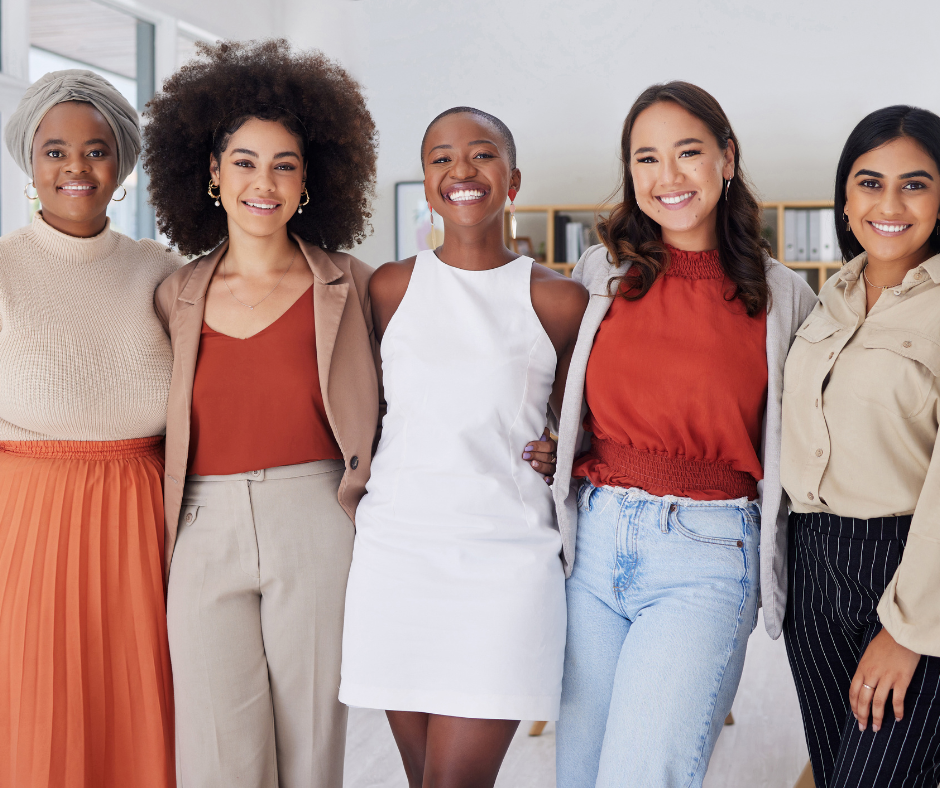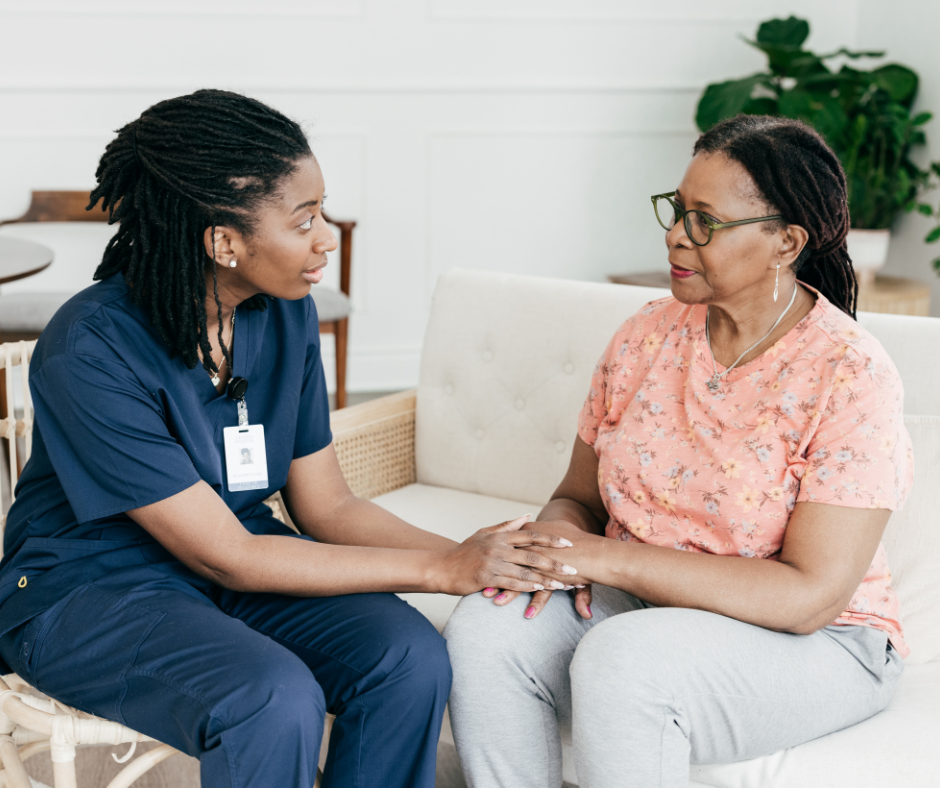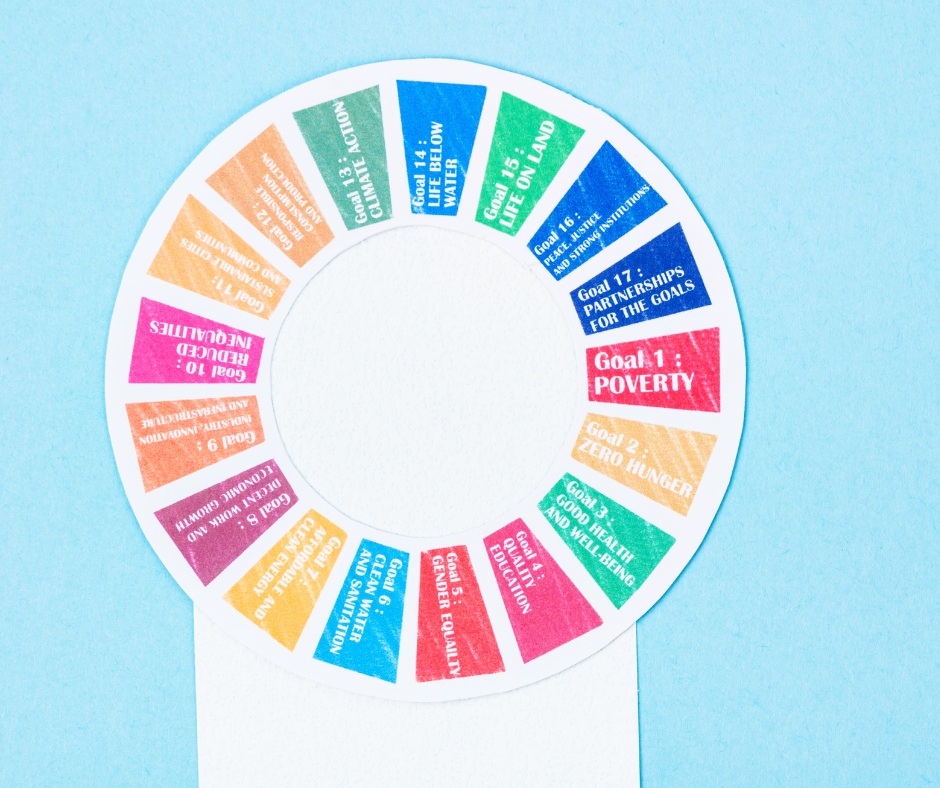In the heart of conflict zones, amidst the chaos and uncertainty, lives a group of women known as “Half-Widows.” These women endure a unique and harrowing plight, trapped in a liminal space between hope and despair, where the absence of their husbands leaves a void filled with unanswered questions and unfulfilled lives. Today, Voice of Widows sheds light on their stories, their struggles, and the urgent need for our collective action. The Term “Half-Widows” The term “Half-Widows” refers to women whose husbands have disappeared, often in conflict zones, without any trace or confirmation of their whereabouts. Unlike traditional widows, they do not have the closure of knowing whether their spouses are dead or alive. This ambiguous loss leads to profound emotional, social, and economic challenges. Living in Limbo Imagine waking up every day not knowing if your partner is dead or alive. This is the daily reality for half-widows. They live in a state of constant limbo, caught between mourning and hope, unable to move on with their lives. This unresolved grief is a heavy burden, affecting their mental health and well-being. Social and Economic Isolation Half-widows often face social ostracism. In many cultures, a woman without her husband is seen as incomplete, and without the certainty of widowhood, she lacks the societal support traditionally extended to widows. Economically, these women are often left destitute. With their husbands missing, they have no access to financial resources or property rights, leading to a life of poverty and struggle. The Emotional Toll The emotional toll on half-widows is immense. They suffer from anxiety, depression, and other mental health issues due to the constant uncertainty and stigma. Their children, too, grow up in an environment of insecurity and fear, impacting their development and future prospects. The Call to Action The plight of half-widows is a humanitarian crisis that demands immediate attention and action. Here are steps we can take to support these women and their families: 1. Raise Awareness Share their stories on social media, blogs, and community forums. Educate others about the unique challenges faced by half-widows. 2. Support Organizations Donate to NGOs and initiatives dedicated to helping half-widows. Volunteer your time and skills to support their programs. 3. Advocate for Policy Change Petition governments to recognize the rights of half-widows. Push for policies that provide financial aid, mental health support, and legal recognition to half-widows. 4. Provide Direct Aid Sponsor a half-widow or her children to ensure they have access to education and basic necessities. Create community support groups to offer emotional and social support. Conclusion The world cannot afford to turn a blind eye to the suffering of half-widows. Their plight is a call to our collective conscience, urging us to act with empathy, urgency, and determination. By raising our voices and extending our hands, we can bring hope and justice to these forgotten women. Half-widows are not just a statistic or a news headline—they are mothers, daughters, sisters, and friends. They deserve recognition, support, and above all, the chance to live a life of dignity. Together, we can make a difference. Stand with half-widows today.
Widows: Self-Empowerment Among Widows By Voice of Widows
In the silent corners of our society, where whispers of loss linger, there exists a profound strength often overlooked: the resilience and empowerment of widows. Today, we embark on a journey to illuminate the path towards self-empowerment, urging every widow to embrace her strength, reclaim her voice, and redefine her future. The Silent Struggle The loss of a spouse is a devastating experience. It is not just the absence of a partner, but a seismic shift that leaves a void filled with grief, uncertainty, and a plethora of challenges. Widows face emotional turmoil, financial instability, and societal expectations that often render them invisible. Yet, amid these struggles lies an untapped reservoir of resilience and potential. Embracing the Pain Acknowledging and embracing the pain is the first step towards healing. It’s essential to understand that grief is a personal journey, and there is no ‘right’ way to navigate it. Allow yourself to feel, to mourn, and to express your emotions without fear of judgment. Cry when you need to, speak about your loss, and seek support from those who understand your pain. Building a Support Network No one should have to face grief alone. Building a robust support network is crucial. Connect with other widows who share similar experiences. Organizations like Voice of Widows provide a platform for shared stories, mutual support, and collective strength. Engage in support groups, both online and offline, where you can find understanding, empathy, and encouragement. Financial Independence: Reclaiming Control Financial instability is a common concern for many widows. It’s vital to take proactive steps towards financial independence. Start by gaining a clear understanding of your financial situation. Seek advice from financial advisors who can help you manage your finances, plan for the future, and make informed decisions. Consider upskilling or reskilling yourself to enhance your employability. There are numerous online courses and community programs aimed at empowering women with the knowledge and skills needed to re-enter the workforce or start a new career. Discovering a New Identity The loss of a spouse often leads to an identity crisis. Who are you without your partner? It’s a difficult question, but one that can lead to profound self-discovery. Take this time to explore your interests, passions, and dreams. What have you always wanted to do but never had the chance? Whether it’s pursuing a hobby, traveling, or starting a new venture, this is your opportunity to redefine your identity on your terms. Advocacy and Activism Empowerment also comes from advocating for yourself and others. Raise your voice against societal norms that seek to marginalize widows. Engage in activism to bring about policy changes that support widows’ rights and welfare. Your story, your voice, and your actions can inspire change and empower countless others in similar situations. Health and Well-being Taking care of your physical and mental health is paramount. Grief can take a toll on your well-being, leading to depression, anxiety, and other health issues. Prioritize self-care by maintaining a healthy diet, exercising regularly, and seeking professional help if needed. Practices like meditation and mindfulness can also help in managing stress and fostering a sense of peace. Inspirational Stories: Lighting the Path Throughout history, widows have risen from the ashes of their loss to create impactful legacies. From Eleanor Roosevelt, who became a formidable political figure after the death of Franklin D. Roosevelt, to Mary Todd Lincoln, who advocated for the rights of veterans and orphans, widows have shown incredible strength and resilience. Modern-day widows continue to inspire. Consider the story of Sheryl Sandberg, who, after the sudden death of her husband, became a vocal advocate for women’s empowerment and resilience through her book “Option B.” These stories serve as beacons of hope, illustrating that there is life, purpose, and fulfillment beyond loss. Urgency: The Time is Now Empowerment is not a distant goal but an immediate necessity. Each day spent in despair is a day lost in reclaiming your life. Take action now. Reach out for support, seek knowledge, and embrace your journey towards self-empowerment. Your future is not defined by your loss but by the strength you muster in the face of it. Call to Action Voice of Widows is here to support you every step of the way. Join our community, share your story, and become part of a movement dedicated to transforming the lives of widows worldwide. Together, we can create a world where widows are seen, heard, and empowered to live their fullest lives. Remember, empowerment begins with you. Take the first step today, and let your journey inspire others to follow.
Widows: Causes and Effects Voice of Widows: A Call to Action By Irtaza Bilal
In a world where love stories often begin with “till death do us part,” the reality of widowhood can strike like a bolt of lightning, leaving lives shattered and futures uncertain. The plight of widows is an urgent and often overlooked issue that demands our immediate attention and action. This blog aims to delve into the causes and effects of widowhood, offering a voice to those who have been silenced by loss and providing a roadmap for support and empowerment. Understanding the Causes of Widowhood Widowhood is a multifaceted issue with various causes that can impact women across the globe. Understanding these causes is the first step in addressing the profound effects of losing a spouse. 1. Illness and Disease Chronic illnesses such as cancer, heart disease, and diabetes are leading causes of death worldwide, often leaving spouses behind to navigate life alone. The emotional toll of watching a loved one suffer can be overwhelming, compounded by the grief of their passing. 2. Accidents and Unforeseen Tragedies Life can change in an instant. Car accidents, workplace mishaps, and other unforeseen tragedies can abruptly end a life, leaving behind a grieving widow. The sudden nature of these events can make the grieving process even more difficult. 3. Violence and Conflict In many parts of the world, violence and conflict claim countless lives daily. From domestic violence to war, the impact is devastating, creating widows who must not only deal with loss but also navigate the dangers that remain. 4. Natural Disasters Earthquakes, floods, and other natural disasters can decimate communities, taking lives indiscriminately. Widows left in the wake of such events face the double burden of personal loss and communal rebuilding. The Ripple Effects of Widowhood The effects of widowhood extend far beyond the immediate grief and loss. These effects can permeate every aspect of a widow’s life, creating lasting challenges that require community and societal intervention. 1. Emotional and Mental Health Grief is a powerful and often debilitating emotion. Widows may experience depression, anxiety, and even post-traumatic stress disorder (PTSD). The lack of adequate mental health support can exacerbate these issues, leading to a prolonged and difficult grieving process. 2. Economic Hardship The loss of a spouse can lead to significant financial strain, especially if the deceased was the primary breadwinner. Widows may struggle to find employment, pay bills, and provide for their children, leading to a cycle of poverty that is hard to break. 3. Social Isolation Widows often face social isolation, losing not only their partner but also the social networks and support systems that came with that relationship. Cultural stigmas and societal expectations can further alienate widows, making it difficult for them to reintegrate into their communities. 4. Impact on Children Children of widows suffer immensely, experiencing the loss of a parent and often the secondary effects of economic hardship and social isolation. These children may face emotional and behavioral issues, affecting their performance in school and their overall well-being. Taking Action: How We Can Help The voice of widows needs to be heard, and their needs must be addressed with urgency and compassion. Here are actionable steps that individuals, communities, and governments can take to support widows and mitigate the effects of their loss. 1. Provide Emotional and Mental Health Support Counseling Services: Establish accessible and affordable counseling services specifically tailored for widows. Support Groups: Create and promote support groups where widows can share their experiences and find solace in community. Public Awareness Campaigns: Raise awareness about the mental health challenges faced by widows to reduce stigma and encourage support. 2. Economic Empowerment Job Training and Placement Programs: Develop programs that offer job training and placement services for widows to help them become financially independent. Financial Assistance: Provide direct financial aid to widows in need, helping them cover essential expenses during their transition. Microfinance Opportunities: Support microfinance initiatives that allow widows to start small businesses and become economically self-sufficient. 3. Combat Social Isolation Community Engagement: Encourage community engagement programs that include widows in social and cultural activities. Advocacy and Legal Support: Advocate for legal protections against discrimination and support widows in understanding and claiming their rights. Educational Initiatives: Implement educational programs that challenge societal norms and reduce stigma associated with widowhood. 4. Support for Children of Widows Scholarships and Educational Support: Offer scholarships and educational support for children of widows to ensure they have access to quality education. Childcare Services: Provide affordable childcare services to help widows balance work and family responsibilities. Psychological Support: Ensure children have access to psychological support to help them cope with their loss and its effects. A Call to Action The journey of a widow is fraught with challenges, but it is not one they need to walk alone. As a society, we have a moral obligation to stand with them, to offer our support and compassion, and to work tirelessly to alleviate the burdens they carry. Let us be the voice of widows, echoing their needs and championing their rights. Together, we can create a world where no widow feels abandoned, and every widow finds the strength and support to rebuild her life. Join Us in Making a Difference Every action counts. Whether through volunteering, donating, or simply spreading awareness, you can make a difference in the lives of widows. Join us in our mission to provide a voice for widows and create a more compassionate and supportive world for all.
Empower Every Woman: The Voice of Widows
In every corner of the globe, women are the backbone of our communities. They nurture, they lead, they inspire. Yet, among these incredible women, there exists a group often overlooked and marginalized: widows. It’s time to empower every woman and ensure the voices of widows are heard, respected, and uplifted. This is not just a call to action; it’s an urgent plea for justice, equity, and human dignity. The Silent Struggle of Widows Imagine losing your partner, your confidant, your source of emotional and often financial support. Now, imagine facing this profound loss while being shunned by society, denied your rights, and struggling to provide for your children. This is the reality for millions of widows worldwide. According to the United Nations, there are an estimated 258 million widows globally, and nearly one in ten lives in extreme poverty. Widows often face unique challenges: Economic Hardship: Many widows are left without financial support and find it difficult to secure employment due to societal biases and lack of opportunities. Social Stigma: In many cultures, widows are stigmatized and ostracized, deemed unlucky or cursed. Legal Discrimination: Widows often encounter legal obstacles in inheriting property or accessing their deceased husband’s assets. Emotional Trauma: The grief of losing a spouse is compounded by isolation and discrimination. Why Empowering Widows Matters Empowering widows is not just about addressing a humanitarian need; it’s about unlocking the potential of half our society. When widows are empowered: Families Thrive: Empowered widows can provide better for their children, ensuring they receive education and opportunities. Communities Prosper: Economically empowered women contribute to local economies, driving growth and development. Social Equity: Supporting widows challenges discriminatory norms and promotes gender equality. How You Can Make a Difference Advocate for Policy Changes Support Legislation: Advocate for laws that protect widows’ rights to inheritance, property, and social security. Raise Awareness: Use your voice to highlight the issues widows face and the need for legislative reforms. Support Widows’ Economic Empowerment Donate: Contribute to organizations that provide financial support and vocational training to widows. Employ Widows: If you own a business, consider creating job opportunities for widows. Microfinance and Loans: Support microfinance initiatives that provide widows with the capital to start their own businesses. Challenge Social Norms Educate Communities: Work with local leaders and organizations to change negative perceptions about widows. Promote Inclusivity: Encourage inclusive practices in your community, ensuring widows are not marginalized. Celebrate Widows’ Contributions: Highlight stories of widows who have overcome adversity and made significant contributions to society. Provide Emotional and Social Support Create Support Networks: Establish groups where widows can share their experiences and support each other. Counseling Services: Advocate for and support access to mental health services for widows dealing with grief and trauma. Mentorship Programs: Connect widows with mentors who can provide guidance and support as they rebuild their lives. Take Action Today The time to act is now. Widows are not a statistic; they are our mothers, sisters, and daughters. Empowering every woman, especially widows, is a step towards a more just and equitable world. Let’s stand together, amplify their voices, and ensure that no widow is left behind. Join the Movement Donate Today: Your contribution can change a widow’s life. Support organizations dedicated to helping widows. Spread the Word: Share this blog, start conversations, and use social media to raise awareness. Volunteer: Offer your time and skills to support widows in your community or through international organizations. Together, we can create a world where every woman, especially widows, is empowered, respected, and given the opportunity to thrive. Empower every woman. Hear the voice of widows. Act now.
The Silent Struggle: The Effect of Widowhood on Health By Voice of Widows
When a spouse dies, the surviving partner’s world shatters in an instant. Beyond the immense emotional toll, widowhood has profound and often overlooked impacts on physical health. At Voice of Widows, we seek to shed light on this silent struggle and provide actionable support for those enduring this journey. The Hidden Toll of Grief The death of a spouse is one of life’s most distressing events, and its repercussions on health are multifaceted. Studies have shown that widowed individuals face increased risks of both physical and mental health issues, including: Heart Health: The “broken heart syndrome” is not just a metaphor. The risk of cardiovascular disease skyrockets following the loss of a spouse. The stress and sorrow can lead to elevated blood pressure and heart rate, contributing to heart attacks and strokes. Immune System: Grief weakens the immune system, making widows more susceptible to infections and diseases. The body’s ability to fight off illness diminishes, leading to prolonged sickness and slower recovery times. Mental Health: Depression and anxiety are common, with symptoms ranging from mild sadness to debilitating despair. The risk of developing severe mental health disorders increases significantly, especially when the widow lacks a strong support network. Cognitive Decline: The mental strain can lead to cognitive issues such as memory loss and decreased concentration. The stress hormone cortisol affects brain function, exacerbating conditions like Alzheimer’s disease. Sleep Disorders: Insomnia and other sleep disturbances are frequent companions of grief, further deteriorating overall health. Lack of sleep affects cognitive function, emotional stability, and physical well-being. Taking Action: Strategies for Healing While the journey through widowhood is incredibly personal and unique, there are proactive steps that can help mitigate some of the adverse health effects: Seek Professional Support: Therapy and counseling can provide a safe space to express grief and learn coping mechanisms. Support groups, both in-person and online, can offer community and understanding from those who have walked the same path. Prioritize Physical Health: Regular check-ups with healthcare providers are essential. Monitoring heart health, managing stress, and maintaining a balanced diet can help counteract some of the physical tolls of grief. Stay Active: Physical activity, even in small doses, can improve mood and overall health. Activities like walking, yoga, or gardening can provide both physical exercise and a mental break from grief. Build a Support Network: Lean on friends, family, and community resources. Social connections are crucial for emotional support and can significantly impact mental health. Practice Mindfulness and Relaxation Techniques: Mindfulness, meditation, and breathing exercises can reduce stress and improve emotional resilience. These practices can help widows remain grounded and manage overwhelming feelings of loss. Engage in Meaningful Activities: Pursuing hobbies, volunteering, or engaging in community activities can provide a sense of purpose and distraction from grief. An Urgent Call for Awareness and Support The effects of widowhood on health are profound and demand urgent attention. As a society, we must recognize and address these challenges, providing comprehensive support for those enduring such a loss. At Voice of Widows, we urge you to: Educate Yourself and Others: Understanding the health risks associated with widowhood is the first step toward empathy and support. Advocate for Better Resources: Support policies and programs that provide mental health services, healthcare access, and community support for widows. Reach Out: If you know someone who has recently lost their spouse, offer your support. Sometimes, the simplest gestures— a listening ear, a shared meal, or a comforting presence—can make a significant difference. Widowhood is a journey no one should have to navigate alone. By acknowledging the health impacts and taking collective action, we can help those who grieve find a path to healing and hope.
The Internet of Things (IoT): Crafting Connected Solutions in Tech Entrepreneurship By Voice of Widows
In a world where technology continues to break barriers, the Internet of Things (IoT) stands as a beacon of innovation, holding the potential to transform lives, industries, and communities. At Voice of Widows, we believe in harnessing this power to craft connected solutions that drive progress, inspire change, and offer hope to those who need it most. The Promise of IoT Imagine a world where every device you own communicates seamlessly, making your life not only easier but also safer and more efficient. This is the promise of IoT. It’s a network of interconnected devices, from your smartphone to your refrigerator, all working together to collect and exchange data, automating tasks and creating a smarter living environment. For tech entrepreneurs, IoT presents an ocean of opportunities. It’s not just about creating new gadgets; it’s about innovating solutions that can make a real difference. From healthcare to agriculture, the applications of IoT are limitless. Crafting Connected Solutions: Where to Begin 1. Identify the Problem Every successful tech venture begins with identifying a real-world problem. Look around you. What daily challenges do people face? What inefficiencies exist in current systems? By focusing on tangible issues, your IoT solution can be both practical and impactful. 2. Understand the Technology IoT is a confluence of various technologies – sensors, connectivity, data processing, and user interfaces. Understanding how these components work together is crucial. Invest time in learning about these technologies, and if needed, bring in experts who can fill the gaps in your knowledge. 3. Focus on User Experience The most sophisticated IoT solution will fail if it’s not user-friendly. Ensure that your product is intuitive and addresses the needs of the user. Conduct user testing, gather feedback, and iterate on your design until it meets the highest standards of usability. 4. Security is Paramount With great connectivity comes great responsibility. IoT devices are susceptible to security breaches, making it essential to prioritize security in your design. Implement robust encryption, regular updates, and educate users on best practices to protect their data. Emotional and Urgent Call to Action At Voice of Widows, we understand that technology can be a lifeline. For many of us, it’s not just about convenience – it’s about survival. IoT can bring comfort to the elderly living alone, provide critical health monitoring for the chronically ill, and ensure the safety of our loved ones in ways we never thought possible. We urge you to consider the profound impact your innovations can have. This isn’t just about creating the next big tech gadget; it’s about crafting solutions that can save lives, bring solace, and offer hope. Your entrepreneurial journey in IoT can be the key to unlocking a brighter, more connected future for all. Real-World Applications and Impact 1. Healthcare IoT in healthcare is revolutionizing patient care. From wearable devices that monitor vital signs to smart beds that adjust for patient comfort, the potential to improve health outcomes is immense. Imagine a world where a widow living alone has a wearable that alerts her doctor in real-time if something is wrong, giving her children peace of mind and potentially saving her life. 2. Agriculture Smart farming solutions powered by IoT are transforming agriculture. Sensors in the soil can monitor moisture levels, while drones survey crop health. This not only increases efficiency but also ensures sustainable farming practices. For a widow struggling to maintain her farm, these innovations can mean the difference between livelihood and poverty. 3. Home Automation From smart thermostats to security systems, IoT is making homes safer and more comfortable. For the elderly and vulnerable, these technologies can provide a sense of security and independence, allowing them to live with dignity. Final Thoughts The Internet of Things is more than a technological advancement; it’s a tool for empowerment. As tech entrepreneurs, the responsibility to leverage this technology for the greater good lies in your hands. Let’s build connected solutions that not only innovate but also inspire and uplift those who need it most. At Voice of Widows, we believe in the transformative power of IoT. Join us in this mission. Innovate with empathy. Design with purpose. Create a connected future where everyone thrives. Call to Action Don’t wait for tomorrow to make a difference. Start today. Dive into the world of IoT and explore how you can be a part of this technological revolution. Reach out to communities, understand their needs, and develop solutions that matter. Together, we can build a future where technology serves humanity in the most meaningful ways.
Artificial Intelligence Startups: Disrupting Traditional Marketplaces by Voice of Widows
In the realm of technological evolution, Artificial Intelligence (AI) stands as a beacon of innovation, driving unprecedented changes across industries. Among the many voices advocating for this transformation, the Voice of Widows—a collective of resilient women who have turned personal tragedy into a crusade for change—resonates with unique urgency and emotional depth. Their mission is to highlight how AI startups are not just disrupting traditional marketplaces but also creating avenues for social and economic empowerment. The Transformative Power of AI in Traditional Marketplaces Traditional marketplaces have long been dominated by established entities with rigid structures, often leaving little room for innovation and inclusivity. However, AI startups are challenging this status quo by introducing technologies that enhance efficiency, accessibility, and personalization. These startups leverage machine learning, natural language processing, and predictive analytics to revolutionize how products and services are produced, marketed, and consumed. Efficiency and Automation AI-driven automation reduces operational costs and minimizes human error. For instance, in the supply chain sector, AI algorithms optimize logistics, ensuring that products are delivered faster and more accurately. This efficiency extends to customer service, where AI-powered chatbots provide 24/7 assistance, improving customer satisfaction and loyalty. Personalization and Consumer Insights AI startups excel in analyzing vast amounts of data to understand consumer behavior and preferences. This capability allows businesses to tailor their offerings to individual customers, enhancing the shopping experience. Personalized recommendations not only increase sales but also foster a deeper connection between consumers and brands. Accessibility and Inclusivity Voice of Widows highlights how AI is breaking barriers of accessibility. AI-driven platforms enable people with disabilities to interact with digital services more easily. For instance, voice-activated assistants and advanced speech recognition software empower those with visual impairments, ensuring they can participate in the digital economy. Urgency: Why Now Is the Time to Embrace AI The traditional market is at a critical juncture. Businesses that fail to integrate AI into their operations risk becoming obsolete. Here’s why embracing AI is not just an option but a necessity: Economic Resilience: In an increasingly competitive global market, AI provides the tools to stay ahead. By streamlining operations and enhancing decision-making, AI fosters economic resilience and growth. Consumer Expectations: Today’s consumers demand fast, personalized, and seamless experiences. AI meets these expectations, driving customer satisfaction and retention. Social Responsibility: AI has the potential to address social inequalities by creating more inclusive services and products. Companies that adopt AI contribute to a more equitable society. Emotional Appeal: A Call to Action The Voice of Widows is not just about technological advocacy; it’s about human stories. These women have faced immense personal loss, yet they channel their grief into a force for positive change. Their message is clear: the disruption caused by AI startups is not merely a business phenomenon but a transformative movement that can uplift communities and drive social progress. Imagine a world where: Small businesses thrive because AI tools level the playing field, allowing them to compete with larger corporations. Customers feel valued because their needs are anticipated and met with precision. Social barriers are dismantled because AI creates opportunities for everyone, regardless of their physical or economic limitations. Actionable Steps for Businesses Invest in AI Technology: Start small if necessary, but begin integrating AI into your operations. This could be through chatbots, data analytics, or automated marketing tools. Train Your Workforce: Ensure your employees are equipped with the skills to work alongside AI technologies. Continuous learning and development are key. Partner with AI Startups: Collaborate with innovative AI startups to stay ahead of the curve and benefit from their cutting-edge solutions. Focus on Ethics: Implement AI responsibly, ensuring that your practices are transparent and ethical. This builds trust with your consumers and stakeholders. Conclusion The Voice of Widows reminds us that technology, at its best, serves humanity. AI startups are disrupting traditional marketplaces, but they are also providing tools for empowerment and inclusivity. By embracing AI, businesses not only enhance their competitiveness but also contribute to a more equitable and compassionate world. The time to act is now—embrace AI and be a part of this transformative journey.
The Significance of Core Values in Personal and Professional Life
In a world often dictated by trends, fads, and societal pressures, staying true to your core values is not just a matter of personal integrity; it’s a fundamental cornerstone of success and fulfillment. Dr. Bilal Ahmad Bhat, author of “28COE Core Values” and the visionary behind BAB Group of Companies, emphasizes the critical importance of anchoring oneself in these guiding principles. Understanding Core Values Core values are the deeply ingrained principles that define who we are and what we stand for. They shape our thoughts, actions, and decisions, serving as a moral compass in both personal and professional realms. These values are not arbitrary; they are rooted in our beliefs, experiences, and upbringing, reflecting what we hold dear and what we aspire to achieve. The Power of Authenticity Staying true to your core values breeds authenticity, a trait that resonates with others and fosters trust and respect. In a world inundated with superficiality and pretense, authenticity stands out as a rare and invaluable asset. When you align your actions with your values, you project sincerity and integrity, attracting like-minded individuals and opportunities that align with your vision. Guiding Principles in Decision-Making In moments of doubt or dilemma, your core values serve as unwavering guides, helping you navigate through life’s complexities. Whether faced with ethical dilemmas in the workplace or personal choices with far-reaching consequences, your values provide clarity and confidence. By staying true to these principles, you not only uphold your integrity but also make decisions that align with your long-term goals and aspirations. Building Resilience and Purpose Adversity is inevitable, but it is how we respond to challenges that define our character and shape our destiny. When rooted in strong core values, individuals are better equipped to weather the storms of life with resilience and grace. Upholding these principles gives meaning and purpose to our endeavors, fueling our determination and perseverance in the face of obstacles. Conclusion: In a world fraught with uncertainty and ambiguity, staying true to your core values is non-negotiable. Dr. Bilal Ahmad Bhat’s insights underscore the transformative power of these guiding principles in fostering authenticity, resilience, and purpose. Embrace your values as pillars of strength, and let them illuminate your path towards a life of meaning and fulfillment.
10 Things Successful Mompreneurs Do Differently
Introduction: Being a mompreneur – a mother who runs her own business – is a remarkable journey. It’s a path filled with challenges, triumphs, and the balancing act of managing both family and career. While the road may be tough, successful mompreneurs navigate it with finesse, adopting unique strategies that set them apart. In this blog post, we’ll explore the ten key things that successful mompreneurs do differently, offering actionable insights for aspiring and current mompreneurs alike. Prioritize Self-Care: Successful mompreneurs understand the importance of self-care. They prioritize their physical, mental, and emotional well-being, recognizing that taking care of themselves enables them to better care for their families and businesses. Actionable Tip: Schedule regular self-care activities such as exercise, meditation, or hobbies, and treat them as non-negotiable appointments. Set Clear Boundaries: Mompreneurs who thrive establish clear boundaries between work and family life. They designate specific work hours and family time, ensuring that each receives the attention it deserves. Actionable Tip: Create a dedicated workspace and establish ground rules for when you’re “at work” and when you’re “at home.” Delegate and Outsource: Successful mompreneurs understand that they can’t do it all alone. They delegate tasks that don’t require their personal touch and outsource aspects of their business that are outside their expertise. Actionable Tip: Identify tasks that can be delegated or outsourced, such as administrative work, social media management, or accounting, and seek assistance accordingly. Practice Time Management: Time is a precious resource for mompreneurs, and successful ones manage it wisely. They prioritize tasks, set deadlines, and utilize tools and techniques to maximize productivity. Actionable Tip: Use time-blocking techniques to allocate specific time slots for different activities, and leverage productivity apps or tools to streamline your workflow. Continuously Learn and Grow: To stay ahead in the ever-evolving business landscape, successful mompreneurs are committed to lifelong learning. They invest in personal and professional development, acquiring new skills and knowledge relevant to their industry. Actionable Tip: Dedicate time each week to learning something new, whether it’s through online courses, workshops, or networking events. Cultivate a Supportive Network: Building a strong support network is crucial for mompreneurs, and successful ones surround themselves with like-minded individuals who understand their unique challenges. They seek out mentorship, join networking groups, and nurture relationships with other mompreneurs. Actionable Tip: Join online communities or local meetups specifically for mompreneurs to connect with peers, share experiences, and seek advice. Embrace Flexibility: Flexibility is key for mompreneurs juggling the demands of motherhood and entrepreneurship. Successful mompreneurs embrace flexibility in their schedules, approaches, and expectations, adapting to changing circumstances with grace. Actionable Tip: Embrace a mindset of flexibility and resilience, knowing that unexpected challenges will arise, and be prepared to pivot when necessary. Focus on High-Impact Activities: Rather than getting bogged down in busywork, successful mompreneurs focus on high-impact activities that drive results for their business. They prioritize tasks that align with their goals and have the greatest potential for growth. Actionable Tip: Regularly evaluate your tasks and projects, identifying those that have the biggest impact on your business success, and allocate your time and energy accordingly. Practice Mindfulness: Mindfulness is a powerful tool for mompreneurs to stay present, focused, and grounded amidst the chaos of balancing work and family life. Successful mompreneurs incorporate mindfulness practices into their daily routine, whether it’s through meditation, deep breathing exercises, or simply being fully present in the moment. Actionable Tip: Start and end your day with a brief mindfulness practice to center yourself and set a positive tone for the day ahead. Celebrate Achievements and Milestones: Finally, successful mompreneurs celebrate their achievements and milestones, no matter how big or small. They take time to acknowledge their progress, reflect on their journey, and express gratitude for the support they’ve received along the way. Actionable Tip: Keep a journal or gratitude log to record your achievements, milestones, and moments of gratitude, and take time to celebrate your successes regularly. Conclusion: Becoming a successful mompreneur requires dedication, resilience, and a willingness to adopt strategies that set you apart from the crowd. By prioritizing self-care, setting clear boundaries, practicing time management, and embracing flexibility, mompreneurs can create a thriving business while nurturing their families. Remember, success is not just about reaching your goals; it’s also about enjoying the journey and celebrating every step along the way.
The Voice of Widows: Commitment to United Nations’ 17 Sustainable Development Goals (SDGs)
Widows around the world often face significant socio-economic challenges, including discrimination, poverty, and marginalization. Despite these obstacles, their resilience and potential to contribute meaningfully to society are immense. Aligning their empowerment with the United Nations’ 17 Sustainable Development Goals (SDGs) offers a strategic framework for creating inclusive, equitable, and sustainable communities. This blog explores how the voice of widows can and should be integrated into the global commitment to achieving the SDGs by 2030. SDG 1: No Poverty Widows frequently face economic hardships due to loss of income and property rights. Empowering widows with financial literacy programs, access to credit, and entrepreneurship opportunities can significantly reduce poverty levels. Supporting initiatives that offer widows vocational training and employment opportunities will ensure sustainable livelihoods. Actionable Steps: Develop community-based microfinance programs tailored for widows. Provide vocational training and skill development workshops. Ensure access to social protection systems and safety nets. SDG 2: Zero Hunger Widows often struggle with food insecurity. Addressing their nutritional needs through community gardens, food distribution programs, and agricultural training can ensure they and their families have access to sufficient and nutritious food. Actionable Steps: Establish community gardens and cooperative farming projects. Create food assistance programs specifically for widows and their dependents. Promote sustainable agricultural practices among widows. SDG 3: Good Health and Well-Being Health care access is critical for widows, who may face physical and mental health challenges following their spouse’s death. Providing affordable and accessible healthcare services, including mental health support, is crucial. Actionable Steps: Set up mobile clinics to provide health services in remote areas. Offer mental health counseling and support groups. Implement health awareness campaigns focusing on widows’ specific health needs. SDG 4: Quality Education Education is a powerful tool for widows and their children to break the cycle of poverty. Ensuring widows have access to education and lifelong learning opportunities can transform their lives. Actionable Steps: Provide scholarships and adult education programs for widows. Support initiatives that facilitate school attendance for widows’ children. Create literacy programs tailored for widows. SDG 5: Gender Equality Widows often face gender-based discrimination. Promoting gender equality through legal reforms, awareness campaigns, and community engagement can help protect their rights and ensure their participation in societal development. Actionable Steps: Advocate for legal reforms to protect widows’ rights to inheritance and property. Launch awareness campaigns to combat stigmatization and discrimination against widows. Encourage the formation of widow support groups and networks. SDG 6: Clean Water and Sanitation Access to clean water and sanitation is fundamental for health and well-being. Ensuring widows have adequate water and sanitation facilities can prevent diseases and improve their quality of life. Actionable Steps: Implement community water projects to ensure access to clean water. Construct sanitation facilities in areas where widows reside. Promote hygiene education programs targeting widows. SDG 7: Affordable and Clean Energy Energy access is crucial for widows’ economic activities and overall well-being. Providing affordable and clean energy solutions can enhance their living conditions and support entrepreneurial activities. Actionable Steps: Distribute affordable solar lamps and clean cooking stoves to widows. Support community renewable energy projects. Train widows in the maintenance and use of clean energy technologies. SDG 8: Decent Work and Economic Growth Economic empowerment of widows can drive local and national economic growth. Creating decent work opportunities and supporting entrepreneurship among widows can lead to sustainable development. Actionable Steps: Develop job placement and career development programs for widows. Offer business training and support for widow-led enterprises. Promote fair trade practices that benefit widows’ businesses. SDG 9: Industry, Innovation, and Infrastructure Investing in infrastructure that supports widows’ economic activities can drive innovation and growth. Providing access to technology and infrastructure can enable widows to participate in economic development. Actionable Steps: Establish hubs that provide widows with access to technology and resources. Invest in infrastructure projects that improve widows’ access to markets and services. Support innovative projects that address widows’ specific needs. SDG 10: Reduced Inequality Widows often experience social and economic inequalities. Addressing these disparities through inclusive policies and programs is essential for achieving equitable development. Actionable Steps: Implement policies that ensure widows have equal access to resources and opportunities. Promote social inclusion programs that integrate widows into community activities. Address discriminatory practices that affect widows. SDG 11: Sustainable Cities and Communities Creating sustainable and inclusive communities involves ensuring widows have access to safe housing, transportation, and services. Urban planning should consider the unique needs of widows. Actionable Steps: Develop affordable housing projects for widows. Improve public transportation systems to be accessible for widows. Ensure community services are inclusive and cater to widows’ needs. SDG 12: Responsible Consumption and Production Promoting sustainable practices can benefit widows economically and environmentally. Training widows in sustainable agriculture and crafts can create eco-friendly income opportunities. Actionable Steps: Provide training in sustainable farming and resource management. Support widow-led enterprises that produce eco-friendly products. Promote recycling and waste reduction initiatives within communities. SDG 13: Climate Action Widows are often disproportionately affected by climate change. Enhancing their resilience through climate adaptation programs can protect them from environmental risks. Actionable Steps: Implement climate adaptation training and resources for widows. Involve widows in community-based climate action initiatives. Develop emergency preparedness plans that consider widows’ vulnerabilities. SDG 14: Life Below Water For widows in coastal and fishing communities, sustainable management of marine resources is vital. Supporting their involvement in conservation efforts can ensure their livelihoods. Actionable Steps: Train widows in sustainable fishing practices. Involve widows in marine conservation projects. Support alternative livelihood programs to reduce pressure on marine resources. SDG 15: Life on Land Widows often depend on land for their livelihoods. Ensuring their rights to land and resources, and promoting sustainable land use practices can enhance their economic security. Actionable Steps: Advocate for secure land tenure for widows. Promote sustainable agriculture and forestry practices. Support reforestation and conservation projects involving widows. SDG 16: Peace, Justice, and Strong Institutions Widows need protection from violence and exploitation, and access to justice. Strengthening legal frameworks and institutions to support widows’ rights is crucial. Actionable Steps: Advocate for

